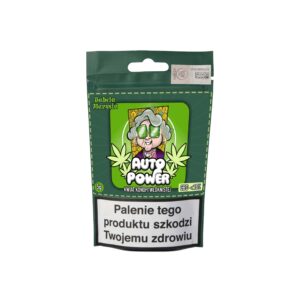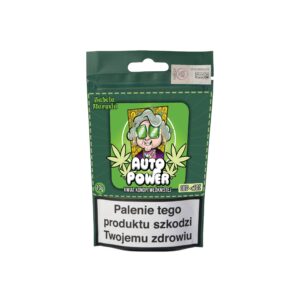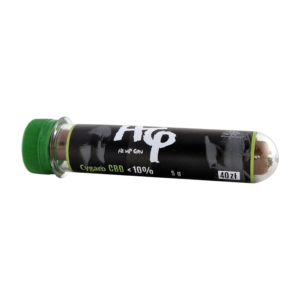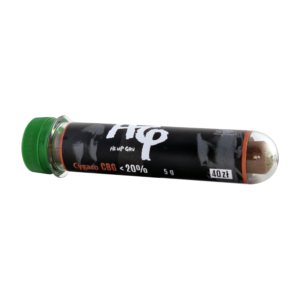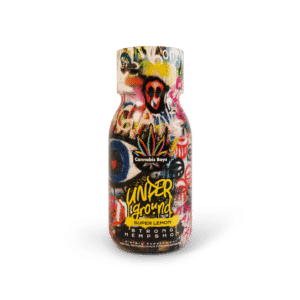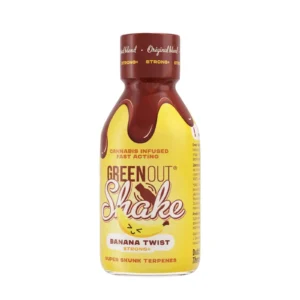There is a popular narrative circulating around the anti-cannabis lobby - that increasing legal access to marijuana, medical or otherwise, will lead to a male fertility crisis with plummeting testosterone and supercooled and rather directionless sperm.
However, if we turn to available human data, any media hysteria about marijuana seems largely unfounded. Instead, evidence suggests that regularly consuming marijuana may affect testosterone levels. Some studies suggest that regular marijuana use lowers testosterone levels, while other studies, on the contrary, correlate marijuana use with increased testosterone levels. The significance of the relationship between marijuana and testosterone levels is not yet fully understood.
CBD oil and testosterone
Before we get into most of what we know about hemp and testosterone, it is important to be clear that we will be talking mainly about THC, as very little research has been done on CBD oil and testosterone at this time.
Although a 2020 review of preclinical research from the PubMed database suggests that "it can be concluded that CBD has a negative effect on the male reproductive system," the authors were very clear that more research is needed to see if these less-than-favorable findings apply. in humans and in what doses.
What is testosterone?
Testosterone, sometimes referred to simply as “T,” is a male reproductive hormone produced primarily in the testicles. Although it is most often considered a male hormone, it is also produced in small amounts in women. It is responsible for many important functions, including sex drive, fertility, fat storage and burning, muscle mass, red blood cell production, and even mood regulation.
Most of us are familiar with the biological changes that occur in boys at the onset of puberty, and it will probably come as no surprise to hear that the dramatic increase in testosterone production is responsible for the deepening of the voice, body hair, increase in muscle mass, growth of the penis and testicles, and production sperm.1
In fact, during puberty and the early 20s, testosterone levels peak and then slowly decline, accelerated by factors such as alcohol consumption, exposure to toxins, obesity, heavy metals and pesticides. Symptoms of low testosterone in men include low libido, erectile dysfunction, fatigue, low mood, loss of muscle strength, and brain fog.
Illegal drug use is often added to the list of contributing factors, but interestingly, commonly prescribed painkillers such as prescription opioids and even ibuprofen can also prematurely reduce testosterone levels in young men.2
Although we generally think of testosterone as the male hormone, it is also found in women, and conversely, estrogen can, a form of the female hormone estrogen, also play an important role in male sexual health. While they are present, they occur in different amounts in men and women, and indeed, it is these gender differences in our hormones that experts say may contribute to the differences in how men and women feel about marijuana.
Marijuana, testosterone and the endocannabinoid system
The average marijuana consumer probably doesn't spend much time thinking about the biology behind the sensations they experience when consuming weed.
In fact, it wasn't until the 1990s, when scientists discovered the endocannabinoid system (ECS), a vast network of special receptors in our brains and bodies that are activated by marijuana-like chemicals, that even the scientific community began to understand marijuana's intoxicating effects. It was realized that THC fits into these receptors like a key that opens a lock, which in turn causes a cascade of effects throughout the body.
The endocannabinoid system itself is understood as a homeostasis regulator, constantly working to maintain balance in all physiological systems. Endocannabinoid receptors can not only be found in the male reproductive system, such as the testis, prostate, vas deferens, and sperm, but other ECS components, such as the endocannabinoid anandamide and the enzyme responsible for its degradation, fatty acid amide hydrolase (FAAH), have also been localized in tissues. testicles. 3
The fact that the leydig cells from which testosterone is released also contain endocannabinoid CB1 receptors has led researchers to conclude that the ECS plays an important role in maintaining healthy levels of testosterone production.
Interestingly, in a 2001 study in mice, anandamide, which works similarly to THC by binding to CB receptors, was found to suppress testosterone levels, perhaps fueling the theory that THC must do the same. 4
THC and testosterone – evidence
While many preclinical animal studies have suggested that THC administration lowers testosterone levels, human studies have been much less conclusive and have failed to prove that marijuana lowers testosterone.
In a 2018 study designed to assess the impact of marijuana consumption on American men, 1,577 men were asked about their frequency of marijuana use and compared it to their serum testosterone levels.
No difference was detected in testosterone levels between men who had consumed marijuana at some point in their lives and those who had never tried it. However, serum testosterone levels were higher in men who had recently consumed marijuana, indicating that any changes are related to how recently marijuana was consumed rather than duration or frequency. 5
However, in Denmark, a study conducted on 1,215 young men found rather conflicting results regarding the effects of marijuana on men's reproductive health. On the one hand, sperm concentration and sperm count were almost 30% lower in once-weekly marijuana users, while, rather counterintuitively, testosterone levels were higher and in the same range as cigarette smokers (it was found that smoking increases testosterone levels). Further research is needed to investigate the effects of smoking marijuana with tobacco on testosterone levels compared to other consumption methods. 6
Can cannabis exposure during pregnancy affect testosterone levels in the fetus?
One area that is sure to spark debate is whether marijuana is safe during pregnancy. While the jury is still out and evidence is lacking, one study aimed to test whether giving THC to expectant mouse mothers on day 12 of pregnancy would affect testosterone levels in their male offspring. At least in this study, testosterone and luteinizing hormone levels were significantly reduced, while CBD administered on the same day resulted in suboptimal testicular weight.
For ethical reasons, this study is unlikely to be replicated in humans, but at least it raises awareness that what a mother consumes during pregnancy, whether cannabis or coffee, can have a direct impact on her baby.
Can marijuana use affect sex drive?
The fact that recent marijuana use appears to increase testosterone levels seems to disprove the theory that marijuana suppresses male libido.
Again, numerous studies in animals, from rodents to primates, suggest that THC is at least a bit of a passion killer. However, when it comes to humans, once again nothing has been conclusively proven.
Several studies have linked marijuana use to premature ejaculation and erectile dysfunction (ED), and when 8,650 Australian men were surveyed about marijuana use and its sexual effects, daily use was correlated with poorer sexual and erectile performance. Women did not experience the same effects of marijuana use, and in fact may have a greater chance of achieving orgasm if they use marijuana. 7
Correlation does not mean causation
When it comes to marijuana and testosterone, it appears this may be another case of correlation not implying causation. Yes, overall testosterone levels may be declining in the West and male infertility may indeed be increasing, but increased levels of marijuana consumption are probably not to blame, and certainly not the main reason. Instead, myriad factors such as opioid abuse, pesticide use on crops and rising obesity levels may play a role.

